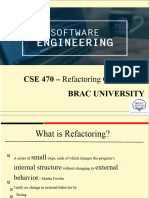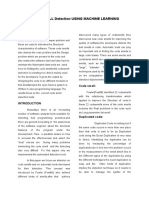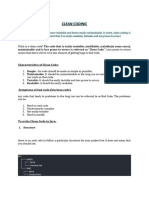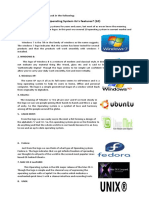0% found this document useful (0 votes)
19 views6 pagesCode Smells How To Identify
The document discusses various code smells that can occur in object-oriented programs, including bloaters, long methods, large classes, primitive obsession, duplicate code, and others. Code smells are symptoms of deeper problems in code that can make code harder to maintain and understand over time if not addressed.
Uploaded by
Diego RezendeCopyright
© © All Rights Reserved
We take content rights seriously. If you suspect this is your content, claim it here.
Available Formats
Download as PDF, TXT or read online on Scribd
0% found this document useful (0 votes)
19 views6 pagesCode Smells How To Identify
The document discusses various code smells that can occur in object-oriented programs, including bloaters, long methods, large classes, primitive obsession, duplicate code, and others. Code smells are symptoms of deeper problems in code that can make code harder to maintain and understand over time if not addressed.
Uploaded by
Diego RezendeCopyright
© © All Rights Reserved
We take content rights seriously. If you suspect this is your content, claim it here.
Available Formats
Download as PDF, TXT or read online on Scribd
/ 6























































































